Terry Gilliam: How I became an unlikely member of Monty Python
How did a US-raised 'barbarian at the gates' and one-time National Guardsman blend so well with a bunch of slick Oxbridge types to create the Monty Python team? Terry Gilliam looks back

So I finally shrugged off the hand of Uncle Sam's press-gang from my collar in the same year I started working with several of the men who were soon to become my co-Pythons. If a divine power had made a New Year's resolution at the start of 1968 to show me the nature of the good fight I was meant to be fighting, she could hardly have done a better job of it.
On the face of it, my new partners in crime would be a respectable bunch – old-fashioned-looking Oxbridge graduates without a tie-dyed acid casualty among them. Appearances can be deceiving, but because they were satirists, they weren't necessarily counter-cultural by inclination. The key to the British idea of comedy was people not being afraid to be ridiculous – everything didn't have to have a higher social purpose. The point of the exercise was just to get everyone to laugh at silly things, rather than to pursue any particular political agenda (although to be fair, it probably is much harder to waterboard somebody if you have a good sense of humour). But in a weird way, they couldn't afford to dismantle the existing system, because then there'd be nothing left for them to have fun taking the piss out of.
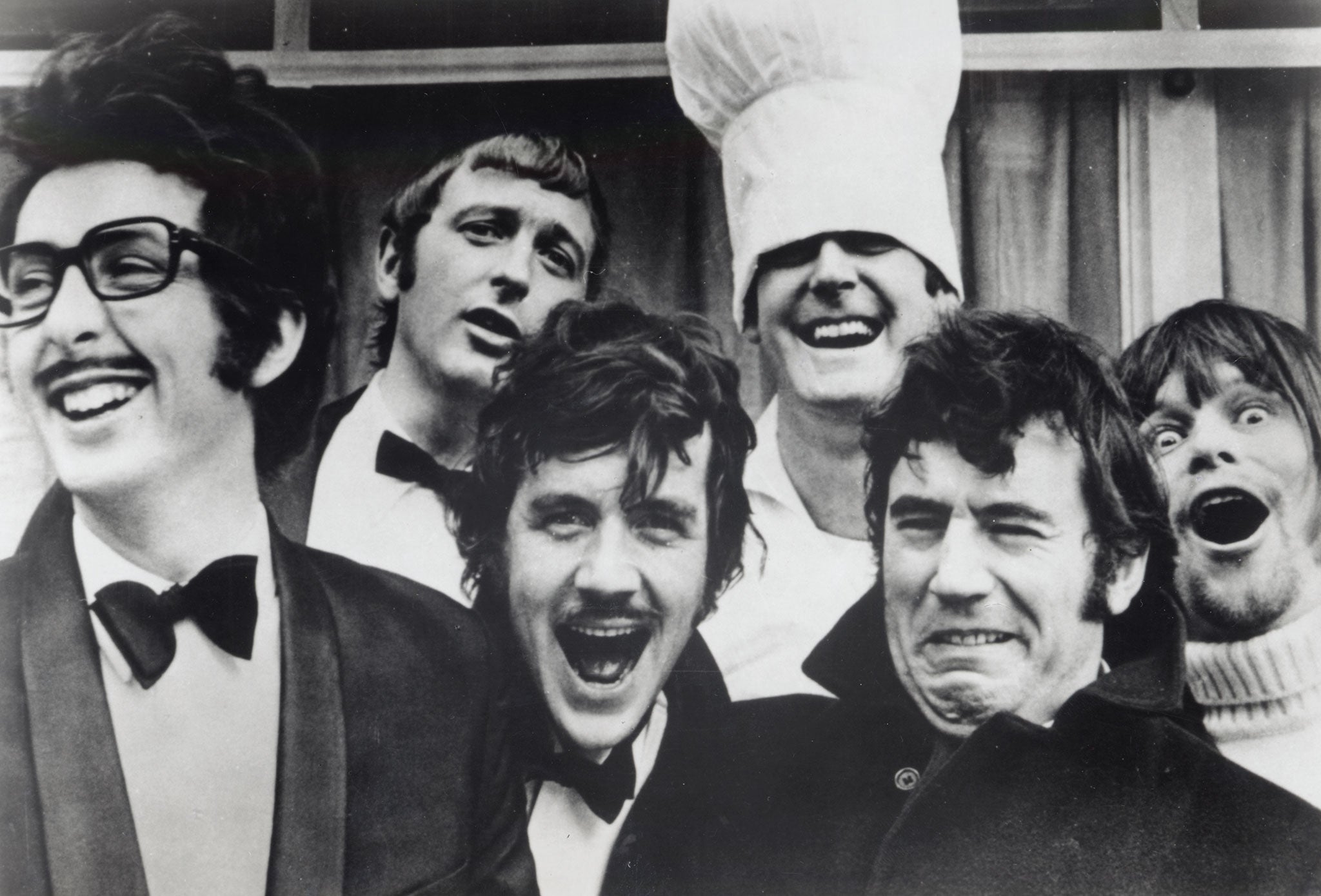
I was less conservative than the others in this regard. They were subversive, but they had that typically sneaky, passive- aggressive British way of undercutting the system – which was much gentler > than the blunt American attack I was used to. Whereas my messianic delusions ensured that I was quite happy to bring the whole thing crashing down around us. It's possible some of my fellow Pythons-to-be might have been slightly fearful of me as a result, and I – reluctant as I would've been to admit this at the time, or indeed for many years afterwards – was rather intimidated by them.
There was no doubt in either my or their minds as to who was the barbarian at the gates and who were the superior beings. It was their use of language that gave them power over me, especially the ones from Cambridge. They had this really well-honed banter, which I was in awe of. It began with being at university together and by the time I came into their orbit, they'd had years of writing together in various different combinations to sharpen it up still further. Of course, everything they found funny was within certain bounds and based on particular common references, but I didn't know what those references were, so I'd be blindly banging around and crashing into things, like the proverbial minotaur in the crockery retailer's.
This rapidly became my unique selling point within the group. Because compared to them (they were so incredibly precise in their verbosity), I must have seemed like some kind of force of nature – a creature that hadn't been neutered by language. I could come in with a big hammer and smash everything up – being the son of a carpenter, I'd hammer in the morning and hammer in the evening – and with so many egos and superegos around, they had a vacancy for an id.
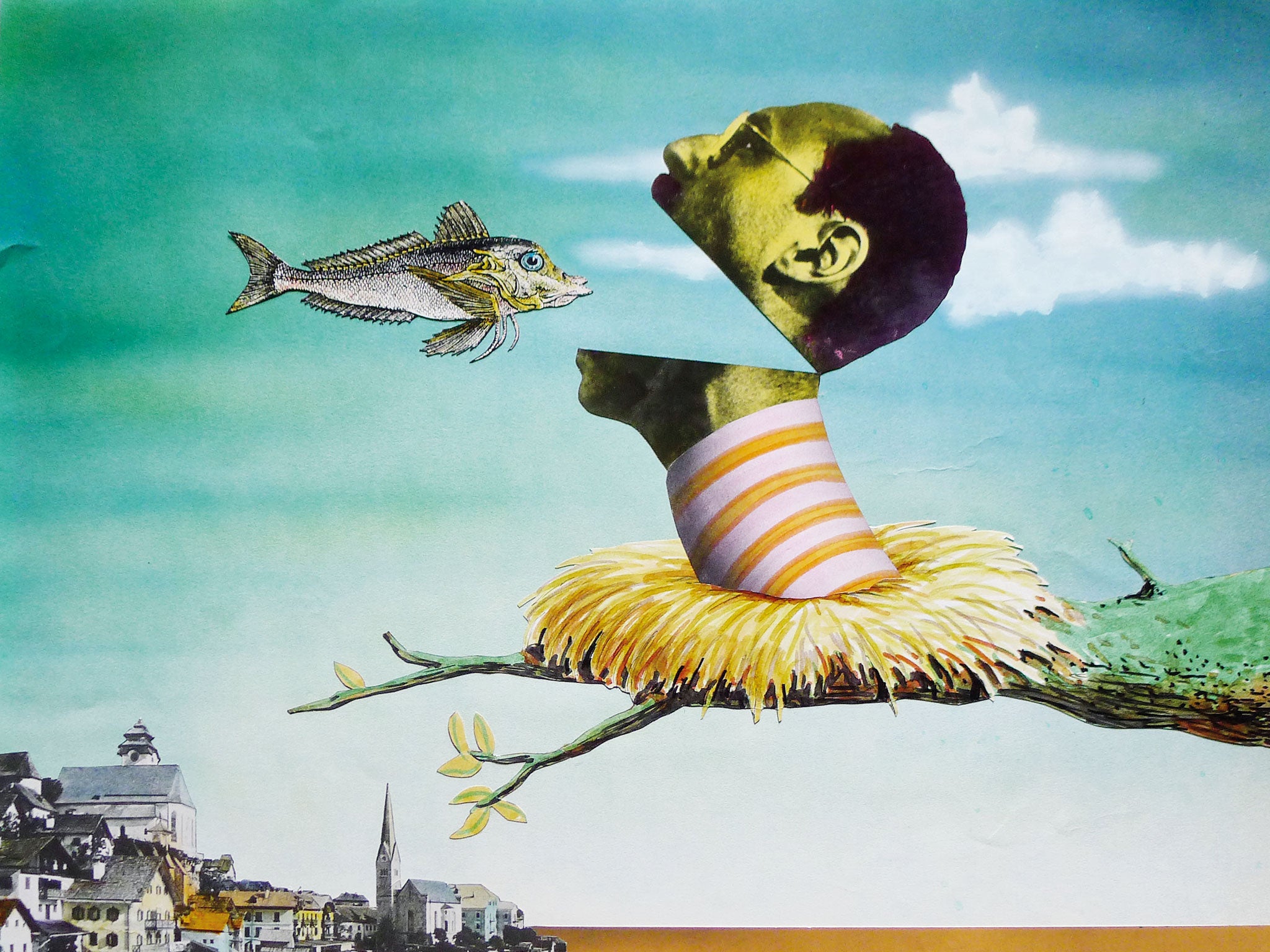
Some of the violence in my Monty Python animations would come from my frustration at not being able to express myself as clearly as everyone else, and some of it evolved naturally from the limitations of the technique itself. But before those two forces could start to pull me in the same direction – as I strove to unify the verbalisation of my lack of verbosity with the visual articulation of my technical inarticulacy – there were a few uncomfortable social preliminaries to be got through.
If you want chapter and verse on the hour and day everything happened, you'd probably be better off reading Michael Palin's diaries. But Eric Idle has ascribed the motivation of "sexual jealousy" to those of his fellow Englishmen who gave me a slightly frosty reception at first, and while it would be immodest of me to agree with him in public, by the time of our early meetings, I had certainly learned to make my transatlantic otherness work for me more successfully than I was doing on my initial arrival in the UK.
In the many accounts of these formative encounters that clog up the voluminous Python chronicles, my Turkish suede coat – on the back of which I had by now painted a large sun (shame to waste a canvas of that grandeur) – does seem to get more than its fair share of attention. I was still with Glenys at the time, who I think some of my soon-to-be colleagues were quite impressed by. But like any self-respecting mould or lichen, I took a little longer to grow on them.
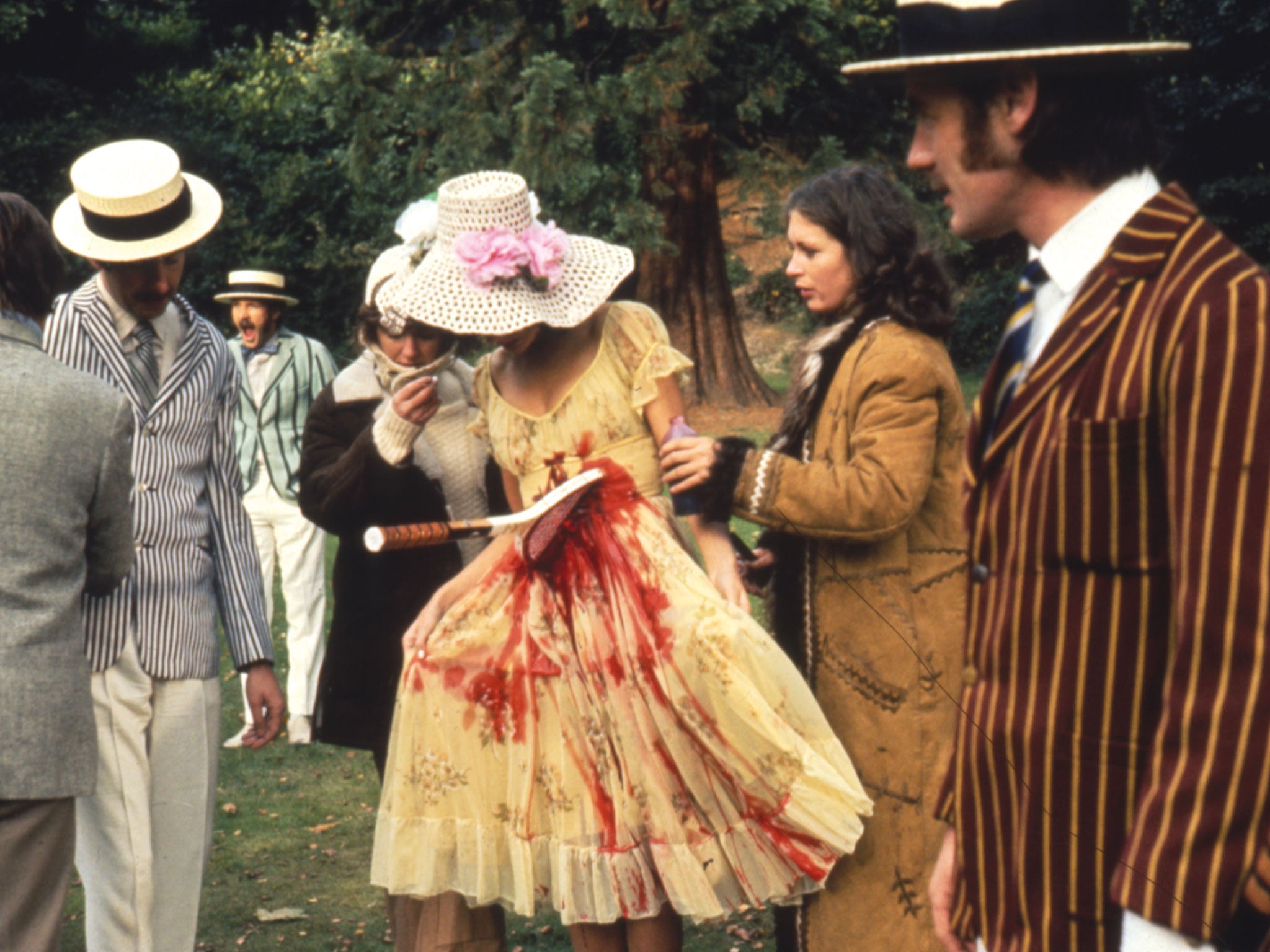
Eric is the one of us who has always been the most drawn to the new and the exotic and the flamboyant, so he was my buddy right from the off, but Terry Jones and Michael Palin – those two little Oxfordians in the corner with their nasty rodental faces – took a bit more convincing. Now, 45 years later, Mike, Terry J and I all live within five minutes of each other, so I must have made some progress in the intervening decades. And to be fair, it was actually Terry J who established the initial template for my contribution to the group that eventually became Monty Python.
The main creative dilemma we were grappling with was how to bring together all the different material we were planning to write without succumbing to the alternate tyrannies of either constructing a linear narrative or having to hobble each sketch with a traditional ending. Terry had very much liked the stream of consciousness element in "Beware of the Elephants", when it went out as part of the second series of Do Not Adjust Your Set, and argued very strongly that the show (which was soon to be christened as below) should have the same free-form feel.
The collective decision to pursue this goal by using my animations as links between the sketches was one that would have happy consequences for all of us. The others were liberated from the dominion of the conventional punchline, while I was given a specific task, which was at once thrillingly clearly defined and infinitely variable. I would be given a series of specific starting and ending points, and everything in-between would be up to me.

This arrangement suited me for a number of reasons. First, because nothing sets you (or at least me) free creatively like having a set of limitations to explore. Second, because my mind tends to work really well that way – making the kind of big connective leaps where this triggers that off, and then that goes there – whereas if I've got too much choice then I'm lost, because I want to explore > all the possible options at once. Third, and perhaps most importantly, the fact that I essentially worked on my own helped define my role within the group as an outsider with a specific contribution to make.
The meetings where we got together to discuss which material should and shouldn't be used were – necessarily, but perhaps more so due to the nature of the personalities involved – very strategic affairs. The factions within the group weren't set in stone, but would dissolve and reconstitute along a series of different fault lines – Oxford (and Occidental, the Os often stuck together) against Cambridge, the Do Not Adjust Your Set veterans versus the rest, people whose names were Terry standing up bravely against people whose names weren't Terry – according to the issue in hand. Luckily for me, given first my spectacular lack of aptitude for power-play of this type, and second my complete inability to present my ideas verbally, the fact that I was responsible for the only section of the show into which no one else had any direct input excused me from most of the political in-fighting.
My fellow Pythons used to be quite tactical, both in terms of their own contributions and their responses to those of others, for instance not starting with the material that was dearest to them, and/or allotting their laughter as much as a reflection of current alliances as the virtues of the material itself. Because I lacked the need for such manoeuvrings, I actually became quite useful to the group as the genuine laugher – like a comedy-writing version of the mystery shopper. If I thought it was funny, then the chances were it actually was, because I had nothing to gain by taking sides.
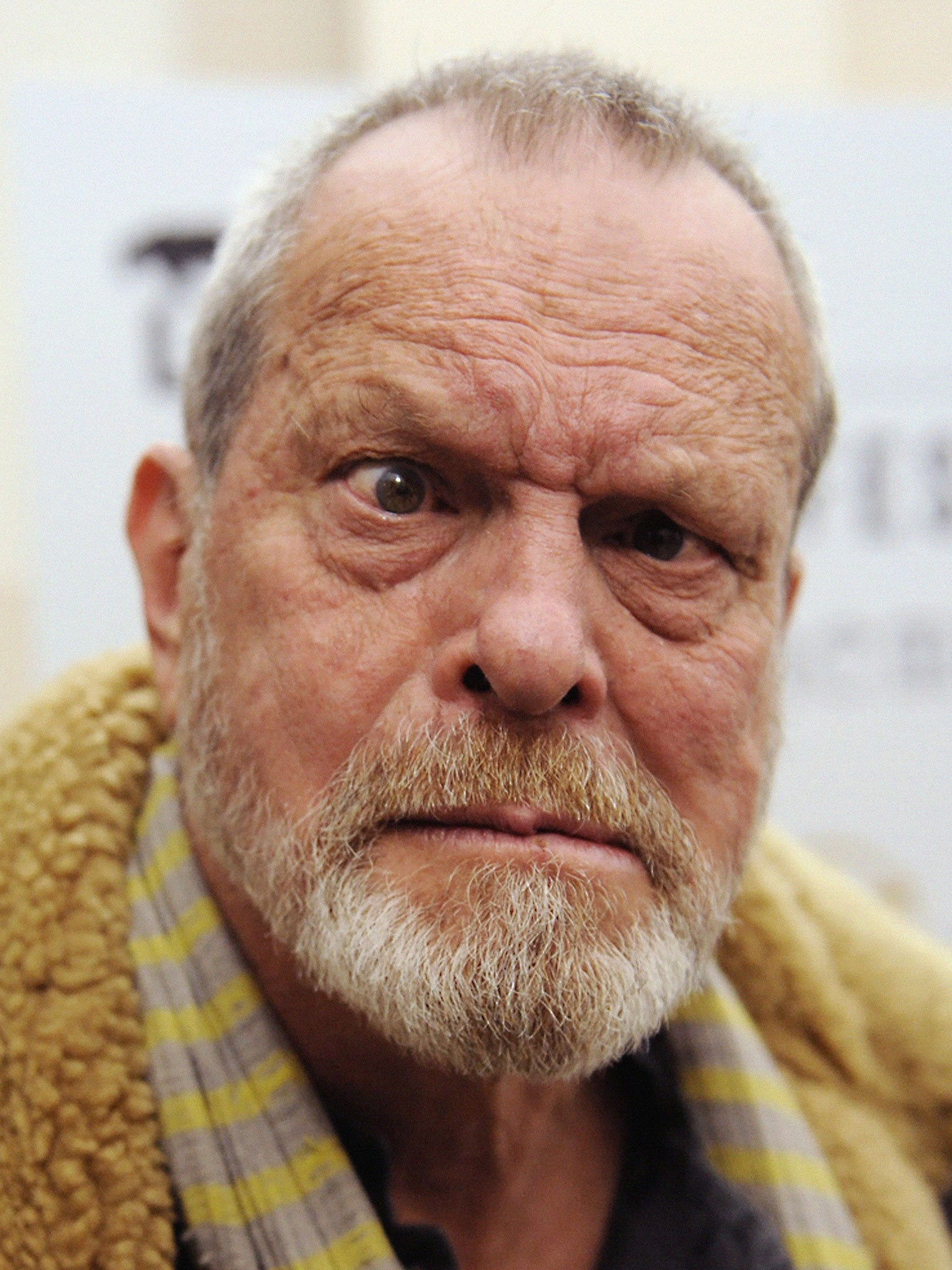
Eric's theory – which I think is a good one – is that we were all slightly mad in different ways, and as a consequence we added up to a single effectively mad personality, which operated in a strangely functional way. I think there was certainly a good work ethic established right from the off, and the fact that each of us had done the odd thing that the others respected helped band us together. There was also a lucky chemical balance between me bringing a bit of fresh brashness and brutality to people who, while not exactly old lags, had certainly done their time in the satirical trenches with David Frost.
The great thing about making the first and second series was the necessity to just churn stuff out. With success and the extra resources that brings, you can second-guess yourself to death, but when you simply have to produce 30 minutes of material in double-quick time, that really frees you up. For instance, if you've ever wondered why all the characters in those animations tend to hop everywhere, that's because it's much quicker and easier to do than making them walk or run.
One of the fundamental appeals of animation is that the restrictions of everyday mortality do not apply. People can be squished and stomped, and still bounce back up – like in Tex Avery cartoons. It's almost a glimpse of eternal life. We're free from the limitations of what God made, and in terms of the world I'm working in, I actually become God.
There's a famous early animation from the 1920s called "Out of the Inkwell" by the Fleischer brothers, which I stole a lot from. The animator draws a clown, but it's like the sorcerer's apprentice in that the character escapes his control and takes on a life of its own. People knowing how much that cartoon meant to me might assume I identified with the animator, but I actually wanted to be the cartoon. And so my schizophrenic life began...
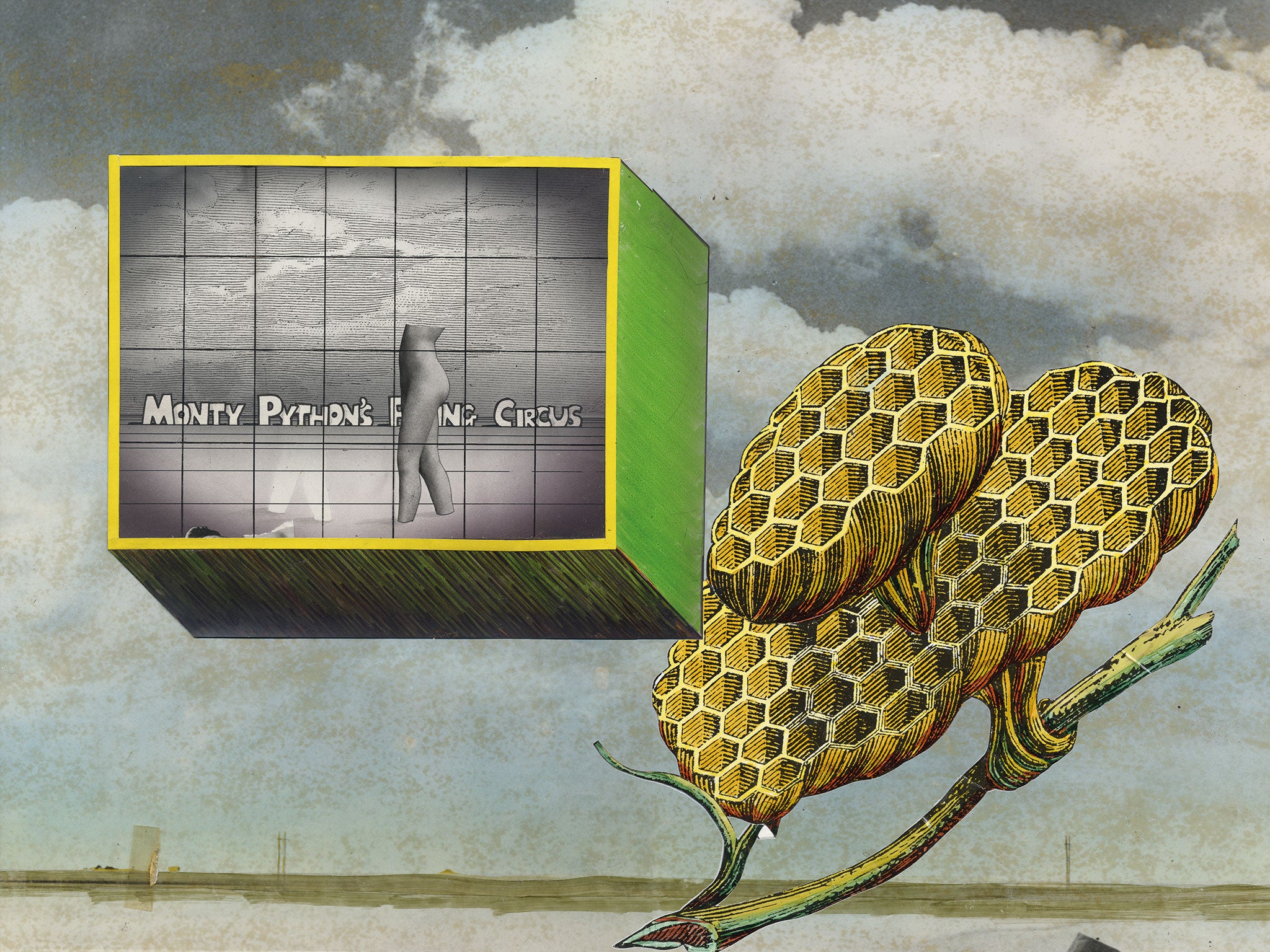
That demolition of the fourth wall is essentially what happened when I was doing the Python animations. I'd be throwing all-nighter after all-nighter to get the work done, and at some point in the early hours of the morning, the story would just start making itself. One object would suddenly find itself juxtaposed with another one in a relationship that immediately made sense of something else, even though I didn't necessarily quite know what.
When that euphoria kicks in, I'm like a junkie. It's great, and it's flowing and where does this stuff come from? Wow. I'm riding the tiger – let's go! A lot of it is about trying to block out the more sensible part of my brain – the controlling part that tries to be rational, that tries to explain. This is a place artists have sought to travel to by many different means. It doesn't really matter how you get there – from straightforwardly blotting out the super-ego (who is the last caped crusader you want on the scene when you've got a deadline to meet), to the various mind-games of the unconscious, which the surrealists pioneered – but I never bothered with any of that stuff: I always found exhaustion worked best for me.
Lack of sleep, lack of time, lack of money and lack of talent – these are the key contributory factors which collude to define the oeuvre. And the same methodology would ultimately carry me on into film-making.
When things are really coming together (as opposed to falling apart) on a movie set, I actually feel like the waves of some kind of ocean are carrying us where we need to go, and I'm just the guy holding on to the tiller. Obviously the idea that one's actions are being directed by some kind of invisible external force can be a dangerous one to give in to. ("That's why I had to kill and mutilate all those nuns, because the voices told me to . . . it can't have been me because I'm a really nice guy.") But I suppose that's what being an artist is really: a kind of controlled madness. That's why we're allowed to wander the streets doing the sh*t that we do.
This is an extract from 'Gilliamesque – a Pre-Posthumous Memoir', out now, published by Canongate at £30
Terry Gilliam appears at the Southbank Centre, SE1 on Wednesday 7 October
Join our commenting forum
Join thought-provoking conversations, follow other Independent readers and see their replies
Comments
Bookmark popover
Removed from bookmarks